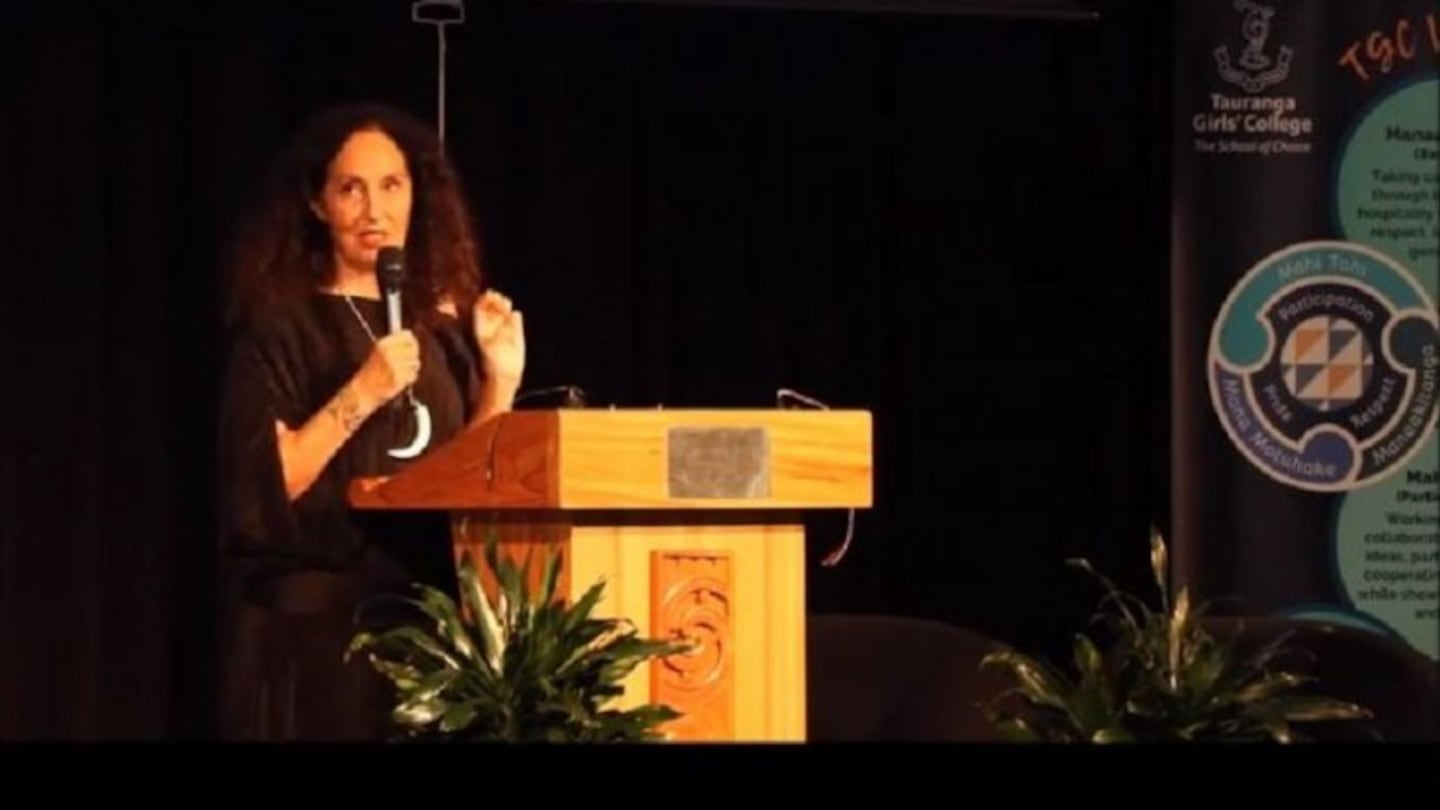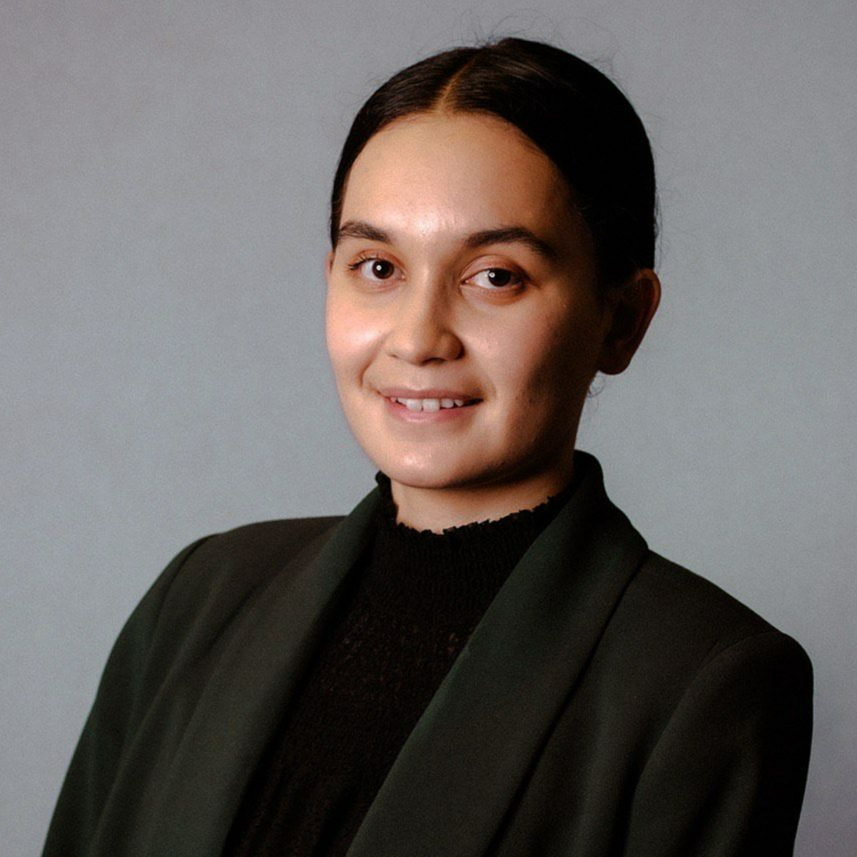By Natasha Hill, Te Rito journalism cadet
It started with song, Moana Maniapoto launched into a waiata as soon as she took to the stage, then eased into her pepeha.
She was part of a panel of inspirational wahine toa speaking about the visibility of Māori women to more than 100 young women from local Bay secondary schools this week.
The singer, lawyer, and journalist spoke alongside Tiana Ngawati, Pianika Ormsbury, and Brandi Hudson.
The four women have been friends for several decades, since they were involved in the award-winning documentary series Whānau.
They share a common background and talked about breaking the barriers Māori women face and taking a stand for future generations.
Maniapoto warmed up the audience with a story about her first day on the job as a journalist.
She had to tackle an interview with then-Prime Minister Jacinda Ardern.

Despite getting on with her personally, Maniapoto had to go straight into grilling her in front of the camera on how the Budget had failed Māori - awkward much?
Maniapoto was the lead singer with Moana and the Moa Hunters when their hit single Black Pearl was a huge success in the 90s.
More than 30 years on, Maniapoto says the song is still relevant as its aim is to raise the visibility of Māori women.
“Māori women were just nowhere in the music industry and we were barely on television, and it was just a real struggle.”
The struggle motivated her to write songs in te reo and to take her music and reo overseas to places such as Taiwan, Russia, and the United States.
Touring with her band and meeting indigenous people from all over the world, Maniapoto says she witnessed the influence that Māori have provided to other indigenous peoples.
“What’s really exciting is when you go overseas, and you see, you know, the joy and the inspiration and the intelligence that our people have given to the world.”
Her next album will be released later this year and is a collaboration with an indigenous Taiwanese artist - both are singing in their native tongue.
Being in the public eye as a performer also meant Maniapoto had to step up in other ways.
“I was shoved in the front because there were hardly any Māori women there, singing and writing their own songs.”
Maniapoto spoke to the students about the inequities between women, saying that when Pākeha women were talking about the glass ceiling, Māori women were struggling to be seen.
“We weren’t even at the damn door … we’re not even in the room.”

From left: Tiana Ngawati, Pianika Ormsby and Brandi Hudson speaking at Tauranga Girls College in celebration of Mana Wāhine Day. Photo / Alex Cairns
Laying down a challenge to her audience of young wahine, Maniapoto told them they too must step up.
“We are passing the baton on to a new bunch of Black Pearls, a new bunch of game changers … we need you to keep your eye on the ball, we need to be critical thinkers, we need to put our hands up.”
Starting with a song, and ending the same way, Maniapoto closed with a version of her reo anthem AEIOU, saying it encapsulates the strength of mana wahine.
The event was in partnership with the Western Bay of Plenty’s economic development agency, Priority One.
- Bay of Plenty Times




